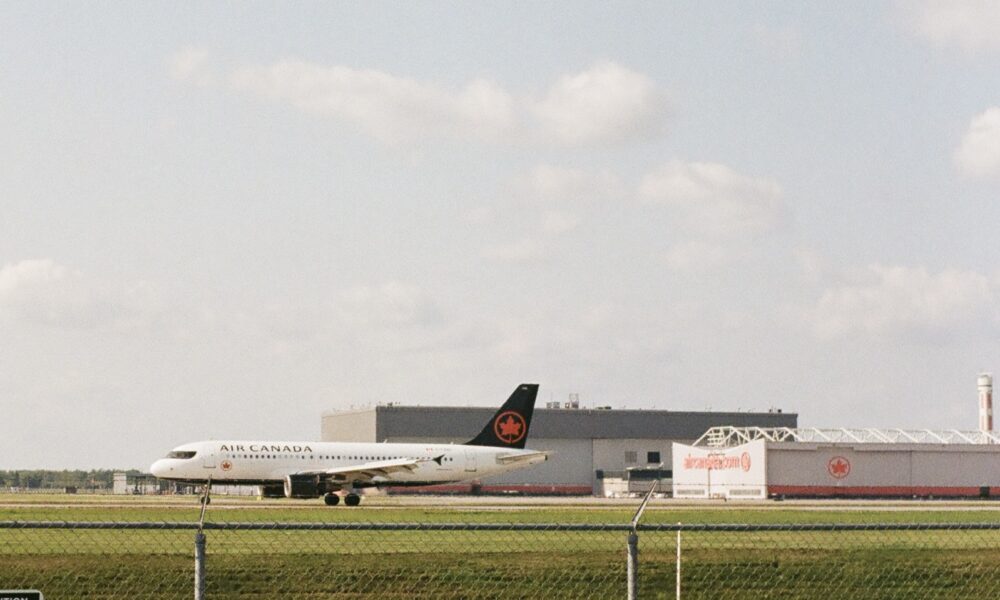With midterms approaching at a rapid pace, McGill’s reading break is an alluring opportunity for well-deserved rest, gruelling last-minute study sessions, or maybe even a quick trip back home. Given that 50 per cent of McGill’s incoming students come from out-of-province or abroad, the Montréal-Pierre Elliott Trudeau International Airport can expect an influx of McGill students in the coming weeks.
As students look forward to a much-needed break, the reality of air travel costs remains a persistent challenge. For many, getting home has become an increasingly unattainable expense. Here in Canada, our air travel choices are scarce and often lead us toward Air Canada. With consistently high airfares, declining customer service, and questionable competition practices, we can’t help but want better for our skyways—and our wallets.
In 2022, Air Canada accounted for 51 per cent of available domestic flights across Canada— a significant figure in any industry, particularly within the national airline market—and this dominance was not achieved naturally. The Greater Saskatoon Chamber of Commerce raised concerns that Air Canada and WestJet—Canada’s second-largest airline—were possibly colluding by dividing flight maps amongst themselves in order to quash further competition and raise prices. This year, the airlines collectively made up 82 per cent of domestic flights compared to 74 per cent in April 2023. Similarly, the Minister of Transport raised concerns over Air Canada’s proposed acquisition of Air Transat, one of its only competitors on over 83 flight routes, as it potentially represents an anti-competitive practice. This proposal was almost given a pass until the European Commission barred the transaction, citing the desire to maintain a competitive market as a primary reason.
The current aviation landscape in Canada isn’t surprising given the circumstances under which Air Canada was created in 1937. The company was founded as a crown corporation, meaning it was operated as a private entity but owned by the federal government, which gave the airline a complete monopoly on domestic air travel until 1959. Given this history, the federal government has a responsibility to address the current monopolistic landscape and ensure that competition in the airline industry serves the public interest.
The scarce presence of budget airlines in Canada, such as Spirit Airlines or Ryanair in the U.S., also means consumers don’t have a choice but to reach deep inside their pockets and pay inflated ticket costs. While ticket prices are steadily declining after a surge during the pandemic, prices remain 10 per cent above what they were in 2019. Post-pandemic, two of Canada’s few budget airlines—Lynx Airlines and Sunwing—both ceased operations with Lynx Airlines shutting down and Sunwing being absorbed by WestJet. Swoop, another low-cost Canadian airline, had a similar fate and was absorbed by WestJet a few days after Sunwing.
With the time constraints associated with long-haul intercity bus services and our rail system’s continuous shortcomings, flying has become the only viable option for many travellers to reach their destinations. As of recently, Air Canada has plans to take over the Canadian rail network by joining forces with the French rail company SNCF to build a long-awaited high-speed electric train corridor between Windsor, Ontario and Québec City. Instead of seeking new business ventures as an attempt to expand its monopoly, Air Canada should focus on improving client experience. This is especially true after the airline ranked at the bottom in a recent survey on customer satisfaction, with Spirit and Frontier, two budget airlines, being the only carriers ranking lower for economy class.
To break free from this monopolistic hold, the federal government must take swift and decisive action to encourage competition in the Canadian airline industry. Interventions like blocking anticompetitive mergers and promoting the growth of budget airlines could provide travellers, including McGill students, with more affordable and diverse travel opportunities. As McGill’s student body increasingly looks toward travel for respite or reconnection, it’s time for Canada to open its skies to better options.







